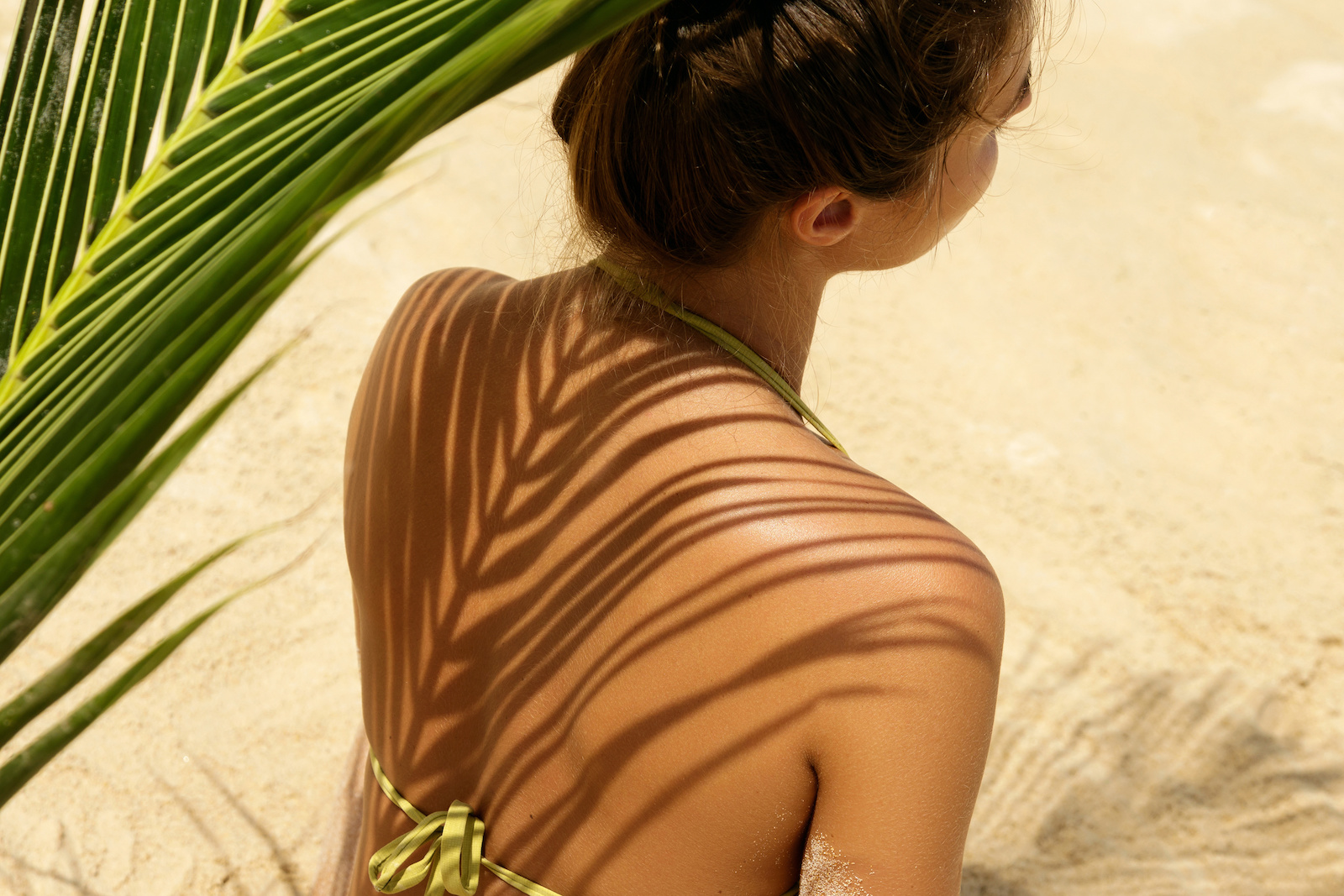The Hormone-Smart Guide to Summer Skin Protection
July 18, 2025
Share Article:

Hormones and the sun? They’re more connected than you think. If you’re navigating perimenopause, menopause, or simply noticing that your once-resilient skin is feeling more reactive – your skincare routine might need a seasonal (and hormonal) upgrade.
Hormonal Changes, Real Skin Impact
Hormones shape more than mood—they influence how your skin responds to the world around it. Estrogen helps keep skin firm, plump, and resilient. But as levels drop, the skin thins, loses moisture, and becomes more sensitive to UV radiation and free radical damage [1, 2]. One clinical study reported that collagen can decrease by 30% within five years of menopause [3]. That’s why now more than ever, consistent sun protection and skin hydration are essential steps in your daily routine.
Why Hormonal Skin Needs Extra Sun Protection
When estrogen drops, your skin produces less sebum (its natural moisture), and your collagen production slows down. That’s a double hit: less moisture and weaker structural support. UV rays only make it worse—accelerating collagen loss, increasing dryness, and triggering inflammation that your skin can’t bounce back from as easily.
Even if you never used to burn or could skip moisturizer in your 20s, hormonal shifts demand a new level of care and attention.
Hormonal Changes, Real Skin Impact
Hormones shape more than mood—they influence how your skin responds to the world around it. Estrogen helps keep skin firm, plump, and resilient. But as levels drop, the skin thins, loses moisture, and becomes more sensitive to UV radiation and free radical damage [1, 2]. Research shows that within five years of menopause, skin collagen content can decrease by up to 30%, significantly impacting skin elasticity and structure [3]. That’s why now more than ever, consistent sun protection and skin hydration are essential steps in your daily routine.
The Hormone-Smart Duo: Shield & Hydrate
This is where smart, hormone-friendly skincare steps in.
Shield by New U Life isn’t just a sunscreen—it’s a skin-supportive formula made with SPF 30 and bioactive ingredients like unripe fig extract, which has been shown to help irritation, protect the skin barrier, and reduce visible oxidative stress [4]. Its SomaTech® technology provides natural vitamin D conversion while shielding skin from UVA and UVB damage.
Lightweight and non-greasy
Enhances collagen support
Protects against environmental and hormonal skin stressors
Hydrate, a cooling facial mist, is more than just an after-sun refresher—it’s an everyday hydration essential. With aloe vera and chamomile, it soothes visible irritation, replenishes moisture, and helps strengthen the skin barrier throughout the day, making it ideal for hormonally sensitive or sun-exposed skin [5].
Pairing Shield + Hydrate is like giving your skin both armor and aftercare—especially when your hormones are throwing curveballs.
Don’t Just Adapt—Thrive
Your skin is changing—and that’s not a flaw, it’s a sign of evolution. Hormonal shifts during your 30s, 40s, and beyond can reshape how your skin looks, feels, and functions. But with the right support, your skin can do more than cope—it can glow. Shield and Hydrate by New U Life are designed to meet your skin where it is now, offering protection, hydration, and repair in every step. This summer, give your skin what it truly needs to thrive—not just survive.
Clinical Studies Referenced
Thornton, M. J. (2002). The biological actions of estrogens on skin.
Experimental Dermatology
, 11(6), 487–502. doi:10.1034/j.1600-0625.2002.110601.x
Hall, G., Phillips, T. J. (2005). Estrogen and skin: The effects of estrogen, menopause, and hormone replacement therapy on the skin.
Journal of the American Academy of Dermatology
, 53(4), 555–568. doi:10.1016/j.jaad.2005.01.009
Brincat, M. (2000). Hormone replacement therapy and the skin.
Maturitas
, 35(2), 107–117. doi:10.1016/S0378-5122(00)00135-6
Park, E., et al. (2012). Antioxidant and anti-inflammatory activities of fig (Ficus carica) polyphenol extracts in UVB-irradiated human dermal fibroblasts.
Journal of Medicinal Food
, 15(3), 258–265. doi:10.1089/jmf.2011.0160
Lee, J., Jung, E., Lee, J., et al. (2009). Anti-inflammatory effects of aloe vera gel in UVB-induced skin inflammation.
Journal of Ethnopharmacology
, 124(3), 666–673. doi:10.1016/j.jep.2009.05.021